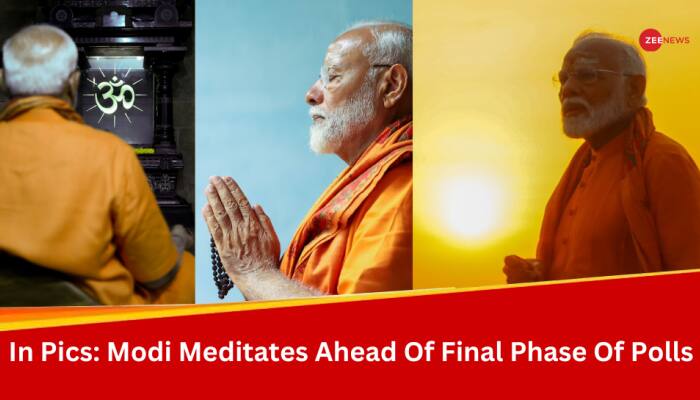US pursues India at WTO, widening trade offensive's Asia focus
The action opened a new front in US President Trump's confrontations with major trading partners.
Trending Photos
) Photo: Reuters
Photo: Reuters The United States (US) said on Wednesday that it was taking action at the World Trade Organization (WTO) against Indian export subsidies as Washington's intensifying trade offensive moved to encompass two of Asia's largest economies.
The action opened a new front in President Donald Trump's confrontations with major trading partners and followed his punishing new import tariffs, with officials warning that more may come soon.
Documents seen by AFP on Wednesday also revealed the US has proposed WTO reforms that would punish members for violating basic rules, a move that appeared aimed squarely at China — a country the Trump administration has said is not a market economy and does not deserve membership in the multilateral organization.
The White House is also considering slapping tariffs on billions of dollars in Chinese imports, particularly in the tech and telecommunications sector, in response to allegedly improper practices involving American intellectual property.
In advance of the announcement on Indian exports, Trump tweeted early Wednesday that the United States could not "keep a blind eye to the rampant unfair practices against our country!"
Trump's trade moves have laid bare ideological divisions within his own administration, spurring his top economic advisor to resign last week and drawing fierce rebukes from industry and members of his own Republican party.
Fears of a trade war have seen US stocks dive in recent days and caused industrial giants like Boeing to fear higher input costs and retaliation by trading partners due to the new tariffs.
US Trade Representative Robert Lighthizer said Wednesday in a statement that Indian export subsidy programs "harm American workers by creating an uneven playing field on which they must compete."
"USTR will continue to hold our trading partners accountable by vigorously enforcing US rights under our trade agreements and by promoting fair and reciprocal trade through all available tools, including the WTO."
Politico reported Tuesday that Trump had told Lighthizer to go higher after the trade representative proposed putting tariffs on $30 billion in annual imports from China.
Lighthizer's office declined to comment on proposals currently under development. Trump's aggressive trade actions — which hold true to views on trade and nationalism the president has held for decades — have also left major US trading partners struggling to strike a delicate balance between opposition and appeasement in response.
According to Lighthizer's office, India offers benefits valued at $7 billion annually to domestic exporters such as duty, tax and fee exemptions —including support for producers of steel, pharmaceuticals, chemicals, information technology products and textiles.
In 2016, the United States ran a $30.8 billion trade deficit with India in goods and services, according to Lighthizer's office.
In Wednesday's statement, the office said India had expanded its export subsidy programs, doubling the number of products eligible under one program to 8,000 in the last three years.
Trump has said publicly he does not favor resorting to dispute resolutions at the WTO, where he claims the United States is at a disadvantage. And the administration has instead focused so far on tariffs and remedies under domestic US law.
The action announced Wednesday was the first stand-alone WTO complaint lodged by the new administration. A prior case lodged in September over the sale of wine in Canadian grocery stories built on a complaint brought by the administration of former President Barack Obama.
Unlike Trump, the Obama White House had touted US successes in opening foreign markets to US exports by winning favorable WTO decisions and advertised the fact that the Obama administration had won every WTO case it brought.
Under Obama in 2013, the US won a WTO decision against India over local content rules that Washington said disadvantaged US exports of solar panels. Critics at the time said this undermined Indian efforts to develop local sources of renewable energy.
Live Tv







)
)
)
)
)
)
)
)
)
)
